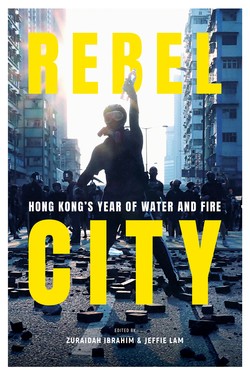Читать книгу Rebel City - South China Morning Post Team - Страница 25
На сайте Литреса книга снята с продажи.
Kill bill: The law that tore a city apart
ОглавлениеJeffie Lam
The birth of Carrie Lam’s extradition bill was how the protests began but even its death could not bring them to an end.
There were two schools of thought as to the motivation behind Carrie Lam Cheng Yuet-ngor’s unpopular extradition bill and why she so doggedly stuck to it even in the face of unprecedented opposition.
One explanation, the one offered by Lam herself, was that she had been moved by the plight of two Hongkongers seeking justice for their murdered daughter, Poon Hiu-wing, who was killed in February 2018 while holidaying in Taipei with her boyfriend Chan Tong-kai.
Chan, the prime suspect in the killing, had managed to return to Hong Kong and was effectively thumbing his nose at the justice system, having admitted killing Poon to Hong Kong police, safe in the knowledge there was little they could do about it.
Authorities could not extradite him to Taiwan to face a murder charge as the two jurisdictions lacked a treaty. Instead he could be charged only with more minor offenses committed on local soil – theft and money laundering – and could be freed before 2019 was out. Empathizing with Poon’s parents, Lam stepped in to prevent a travesty of justice.
That’s one explanation. But there was another, less charitable view. It held that the ambitious Lam saw in the case a perfect opportunity to please her political masters in Beijing by delivering something they had wanted ever since the handover from British rule in 1997: a rethink of colonial-era laws that had expressly ruled out extraditions between Hong Kong and mainland China.
As things stood, Hong Kong had extradition agreements with just 20 jurisdictions, covering 46 crimes from murder to tax evasion and 15 corporate violations, and neither Taiwan nor mainland China were among them. A canny politician might be able to kill two birds with one stone.
